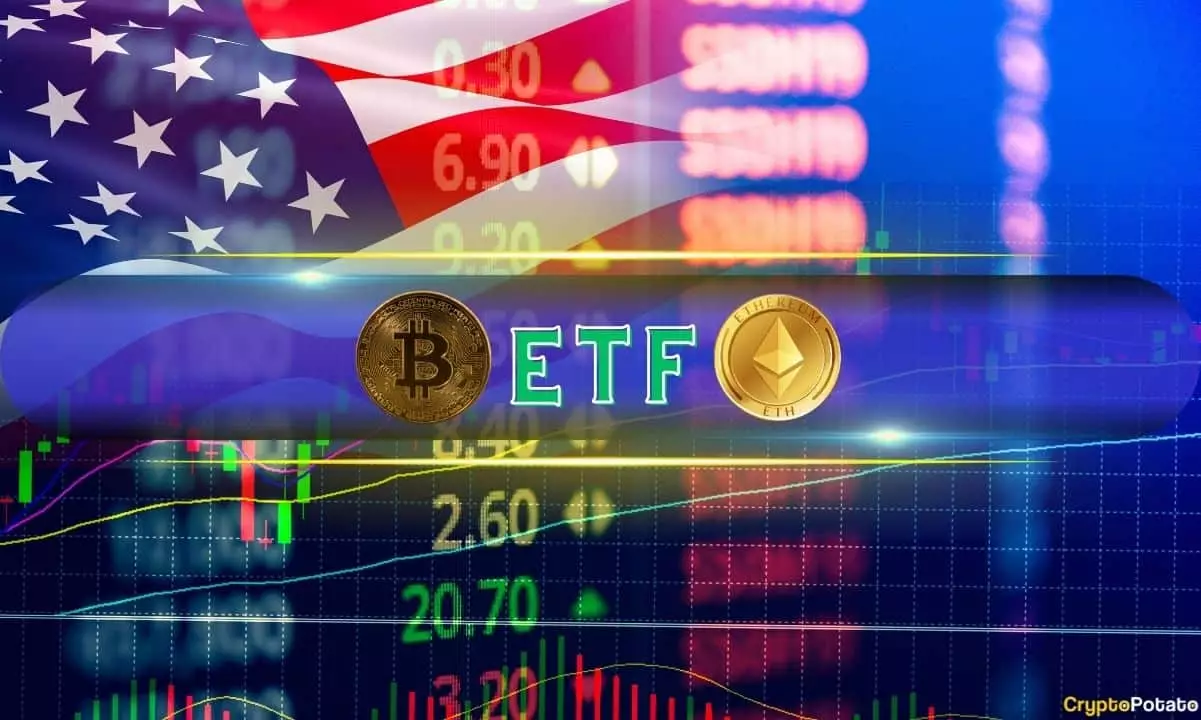The burgeoning world of cryptocurrency has seen a significant shift in investment strategies, particularly with the introduction of cryptocurrency-related exchange-traded funds (ETFs). As of 2024, almost 40% of the top 50 best-performing ETFs are closely associated with cryptocurrencies, revealing an unprecedented level of investor interest in digital assets. This surge signifies not just the popularity of cryptocurrencies themselves, but also highlights ETFs as pivotal instruments for diversification and exposure to this volatile market.
Annual data reveals that in 2024, 19 out of the 610 funds launched were directly linked to leading cryptocurrencies like Bitcoin (BTC) and Ethereum (ETH), as well as significant holdings by corporate giants such as MicroStrategy. Remarkably, this set includes 12 of the top 20 performing funds, emphasizing the substantial financial influx directed toward these crypto ETFs. Such statistics underline the notion that cryptocurrency investments are no longer niche; they have become integral to modern investment portfolios.
BlackRock’s iShares Bitcoin Trust (IBIT) stands out as a beacon of success within this category, reporting a staggering $24.7 billion in year-to-date inflows. Such numbers reflect not merely the strength of the fund but also the rising conventional acceptance of cryptocurrency-based investment options by mainstream investors. In close pursuit is Fidelity’s Wise Origin Bitcoin Fund (FBTC), which has achieved a notable $10.75 billion in net inflows. The impressive metrics of these ETFs indicate a robust appetite for exposure to cryptocurrency as economic conditions evolve and investors seek alternative asset classes.
The Ethereum Effect
Following Bitcoin’s dominance, Ethereum’s entry into the ETF arena has also garnered attention. BlackRock’s iShares Ethereum Trust (ETHA), launched in July, has already attracted more than $1.4 billion, signaling solid demand for Ethereum exposure. Furthermore, additional Ethereum-centric products like the Fidelity Ethereum Trust (FETH) and Bitwise’s ETHW have made their mark within the top 50 performers, collectively accumulating over $2.8 billion. This growing interest reflects not only Ethereum’s established role in the crypto ecosystem but also investors’ confidence in its potential proliferation.
In addition to individual cryptocurrencies, the impact of corporate holdings cannot be overlooked. MicroStrategy, recognized as the largest corporate holder of Bitcoin with over 279,000 BTC valued at about $24 billion, has played a crucial role in the rise of MicroStrategy-linked ETFs. Funds such as the YieldMax MSTR Option Income Strategy and T-Rex 2X Long MSTR Daily Target ETF have successfully attracted substantial inflows, further amplifying the importance of corporate investments in the ETF landscape.
As we delve deeper into 2024, the cryptocurrency ETF trend appears not merely as a fleeting moment but indicative of a broader shift in investment strategy among institutional and retail investors alike. Smaller ETFs like the VanEck Bitcoin ETF (HODL) and Coinshares Valkyrie offering have also gained significant traction, achieving inflows surpassing those of some traditional financial products. This paradigm shift reflects a movement towards a more diversified investment landscape, as cryptocurrency ETFs gain recognition and perform favorably relative to established offerings, such as Vanguard’s California Tax-Exempt Bond fund.
The burgeoning growth of cryptocurrency-related ETFs in 2024 signifies a watershed moment for investors. As these funds continue to demonstrate robust inflows and performance, they not only legitimize cryptocurrency as a viable investment option but also pave the way for further innovations in financial products. As digital assets gain maturity and regulatory frameworks become clearer, it is likely we will see even broader participation from various investor demographics, cementing cryptocurrency’s place within the broader financial ecosystem. The next few years could very well determine the future landscape of investing, where cryptocurrency ETFs become not just popular, but essential components of diversified portfolios.

